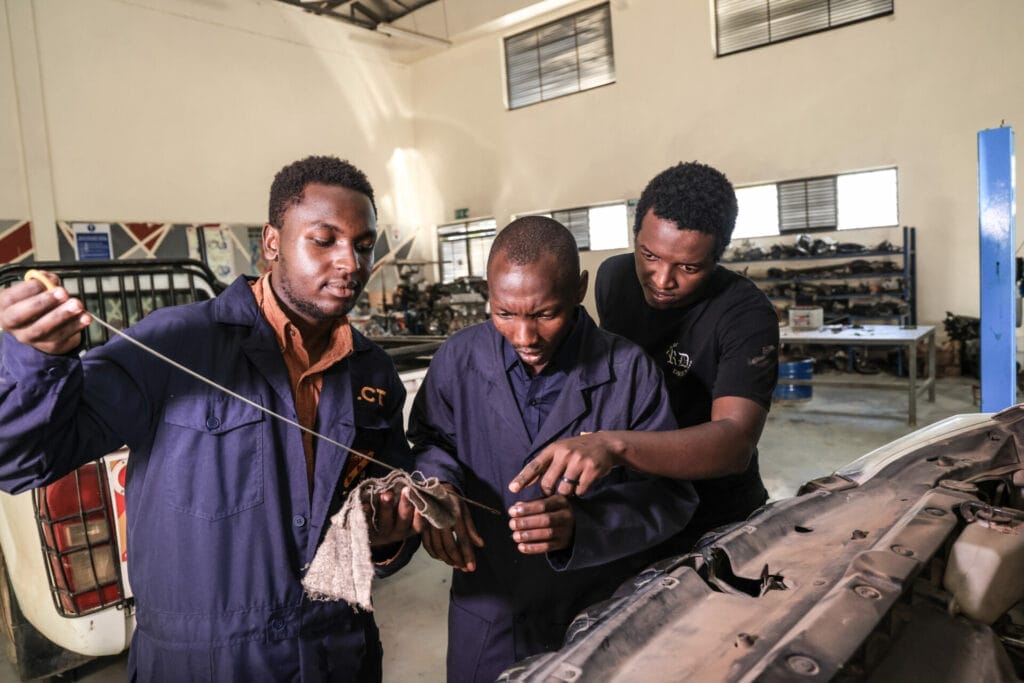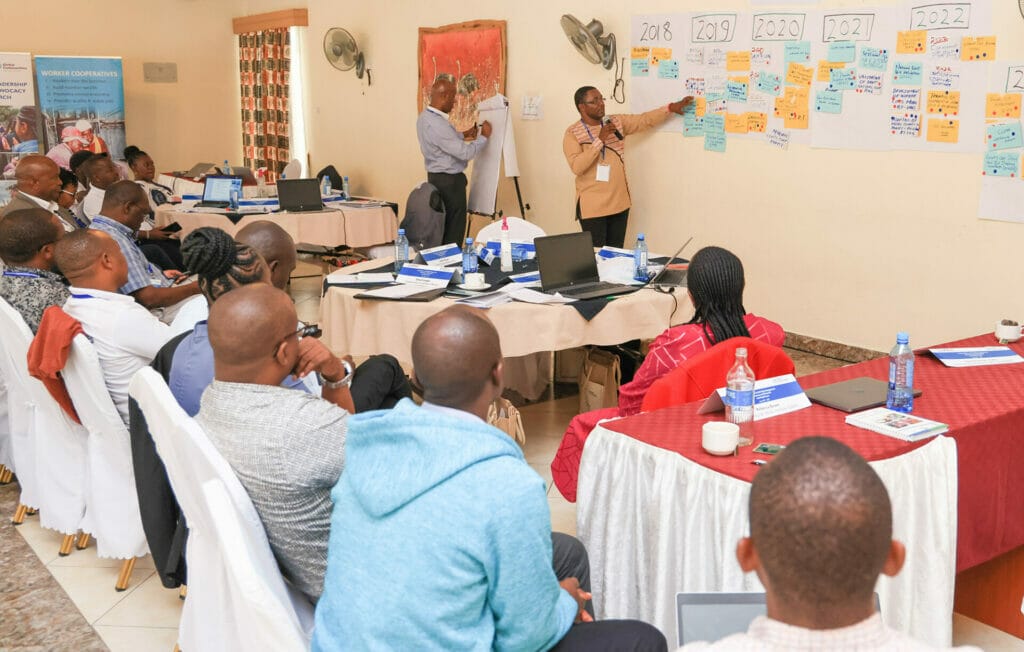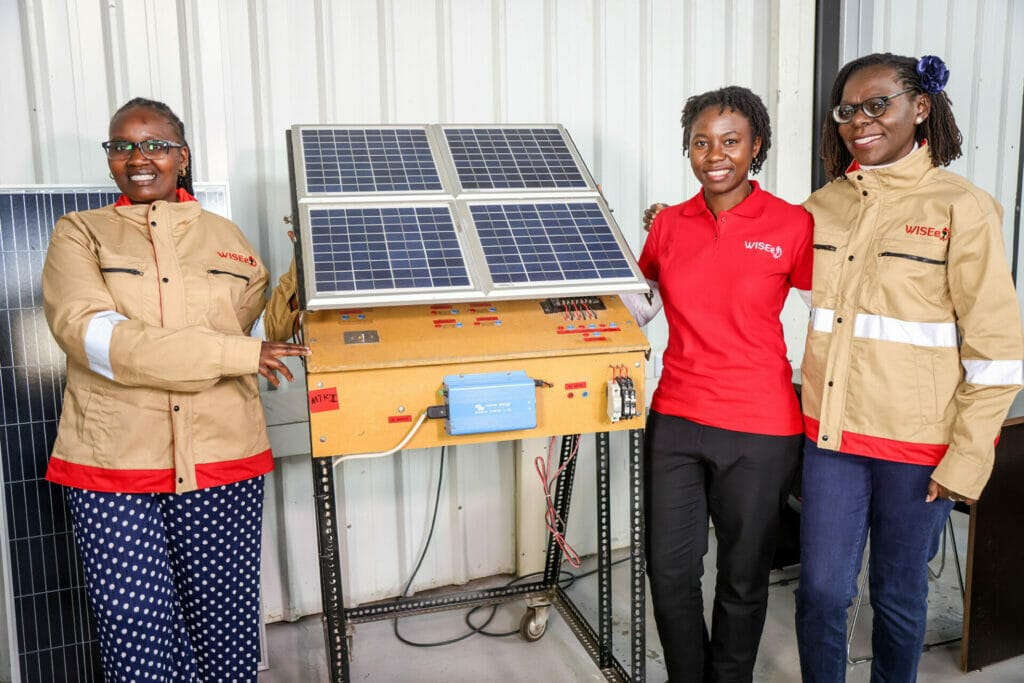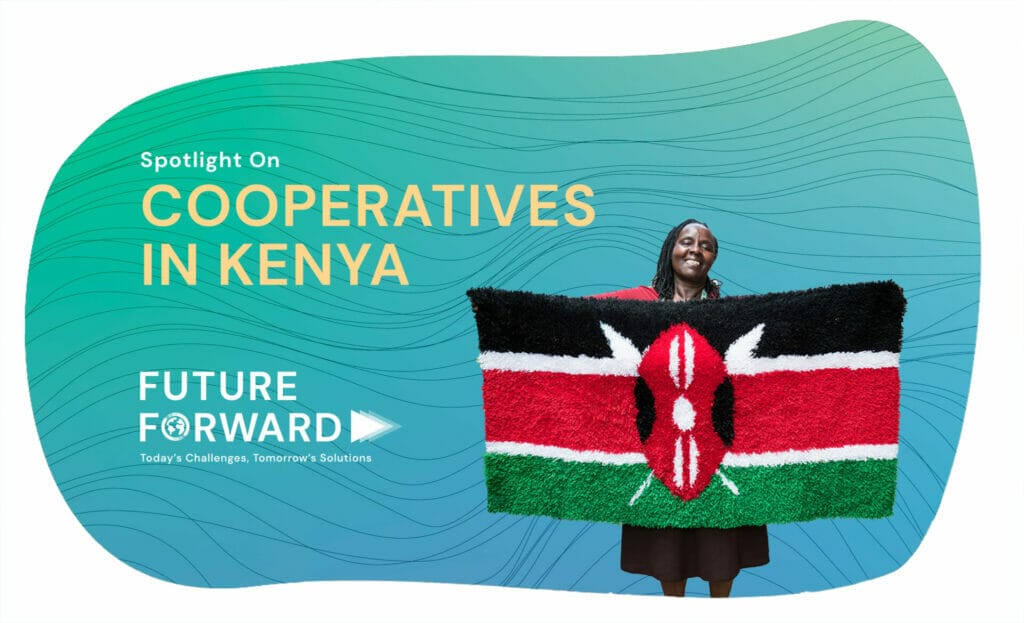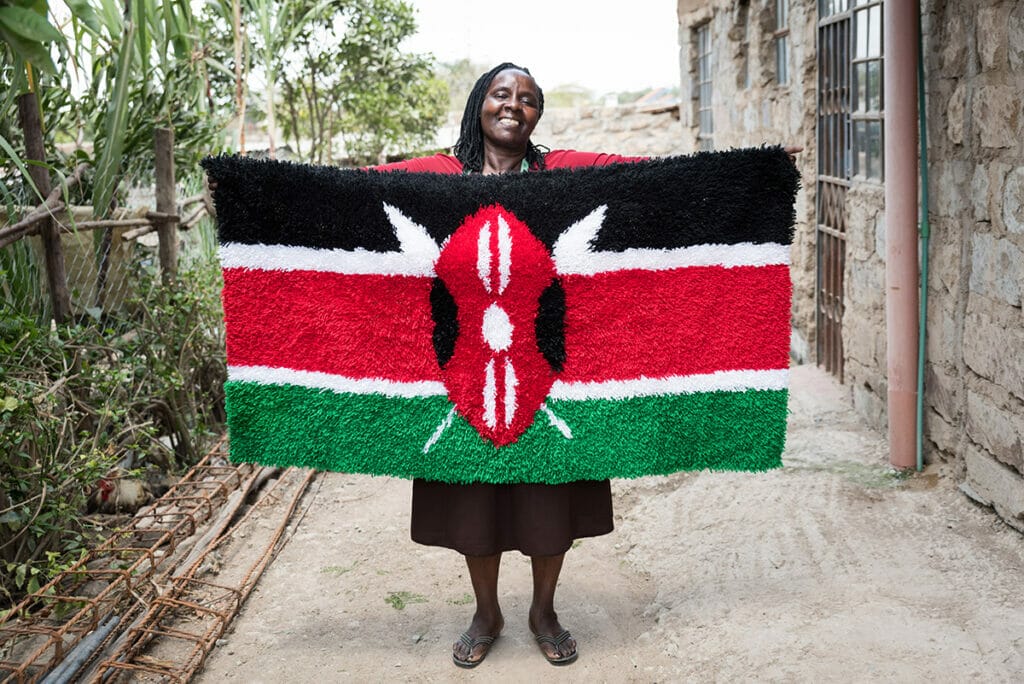Posts Tagged ‘Kenya’
Women-Founded Cooperative Leads Solar Energy Innovation in Kenya
By Maryangela Amendola One phone call changed Jacinta’s future. In 2015, a college friend told her about a renewable solar energy training program provided by Arizona University and funded by the United States Agency for International Development (USAID). She left her career as an engineer and aviation teacher in Mombasa County, Kenya, to pursue the…
Read MoreStrengthening Economic Opportunities for Women Entrepreneurs through Cooperatives
By Ashley Holst Cooperatives are leaders in promoting inclusive economic growth by providing equitable and accessible solutions to economic and social stressors. Two of the seven principles of cooperatives are “voluntary and open membership” and “concern for community,” both of which call upon cooperatives to create opportunities for all people and to put the betterment…
Read MoreDriving Change: Youth-Led Worker Cooperative Transforming Kenya’s Automotive Industry
By Tindi Sitati and Mike Kipngeno Rooted in the energy of youth, the Transparency Auto Worker Cooperative was created in 2022 through a collective vision of former automotive engineering students from Eastlands College of Technology (ECT) in Nairobi County, Kenya. The cooperative, which currently supports 22 active members, is a response to the pressing challenges…
Read MoreGenerating Job Opportunities for Mountain Guides and Porters in Kenya
By Tindi Sitati and Mike Kipngeno Nestled within the scenic landscapes of Nyeri County, Mt. Kenya Guides and Porters Safari Worker Cooperative stands as an inspiring example of the transformative influence of the worker cooperative model in Kenya’s tourism sector. Originating as an informal group in 1971, the cooperative has since flourished into a vibrant…
Read MoreCollaborating for Impact in Kenya’s Cooperative Sector
By Tindi Sitati Collaborative partnerships are the driving force behind the Cooperative Leadership, Engagement, Advocacy and Research (CLEAR) program at Global Communities. These partnerships enhance cooperative sector growth and advance economic prosperity by enabling cooperatives to pool resources, share knowledge, access broader markets and achieve economies of scale. Through collaboration, cooperatives can mitigate risks, foster…
Read MoreBuilding the Resilience of Kenya’s Cooperative Sector through Capacity Building of Policymakers and Implementers
By Olga Oyier & Maureen Gitau, USAID/CLEAR Program Kenya’s devolved system of governance has provided the country with an opportunity to implement grassroots-led development programs but also revealed technical gaps at the county government level, particularly in the area of public policy formulation and implementation. More specifically, the cooperatives policy and legislative reform process to…
Read MoreHow Policy Innovations Can Strengthen Cooperative Businesses in Kenya
By Maureen Gitau, USAID/CLEAR Program Registration of cooperative businesses is a challenging issue for policymakers and stakeholders in the cooperative sector. Under Schedule Four of the Kenyan Constitution, cooperative development is a fully devolved function, meaning oversight for cooperatives was transferred from the national government to county governments, including the transfer of powers and funding.…
Read MoreUSAID CLEAR Program in Kenya Launches a Series of Worker Cooperative Videos
Kenya has a vibrant and dynamic cooperative movement. The worker cooperative model, while new to the Kenyan Cooperative sector, is gaining attention and recognition as a tool for equitable economic development and job creation. In the United States, worker cooperatives have been gaining popularity over the years and their success is making a big impact.…
Read MoreAddressing Housing Challenges through Cooperatives
By Ashley Holst One of the global victims of rising inequality and climate change is access to decent housing. Housing costs are increasing, while the supply is waning. In many countries, including Kenya, where the USAID Cooperative Development Program – Cooperative Leadership Engagement Advocacy and Research (CLEAR), is being implemented by Global Communities, land affordability…
Read MoreLessons from Kenya on Empowering Women in Housing Cooperatives
By Fredrick Nyagah and Tindi Sitati According to data from the International Cooperative Research Group, women represent only 30 percent of cooperative membership in Kenya. This under-representation extends to the leadership level and to the number of staff employed by cooperatives as well. At the same time, as the number of cooperatives increases nationwide, women’s…
Read More


